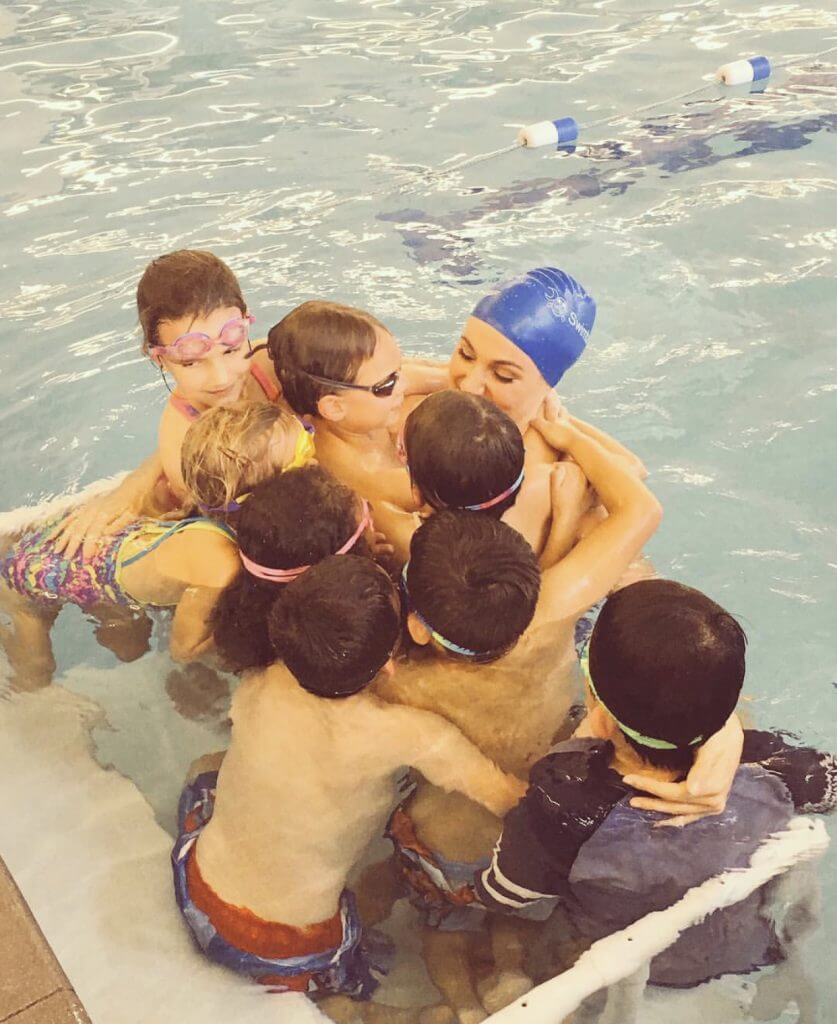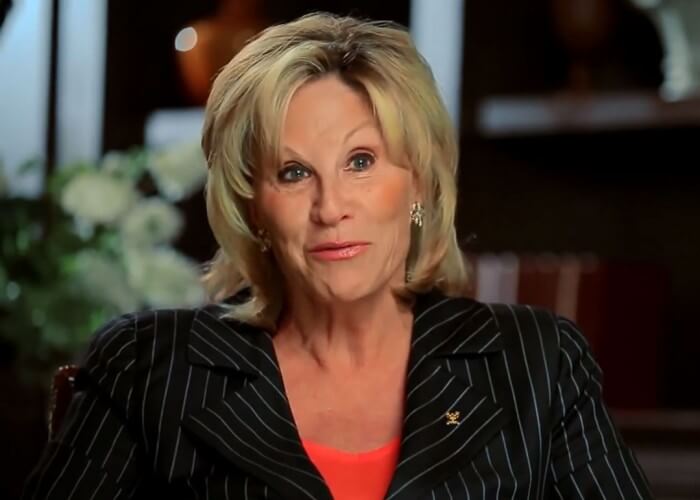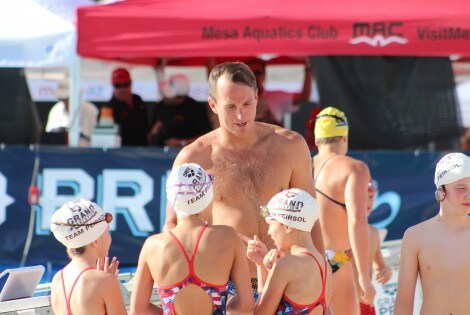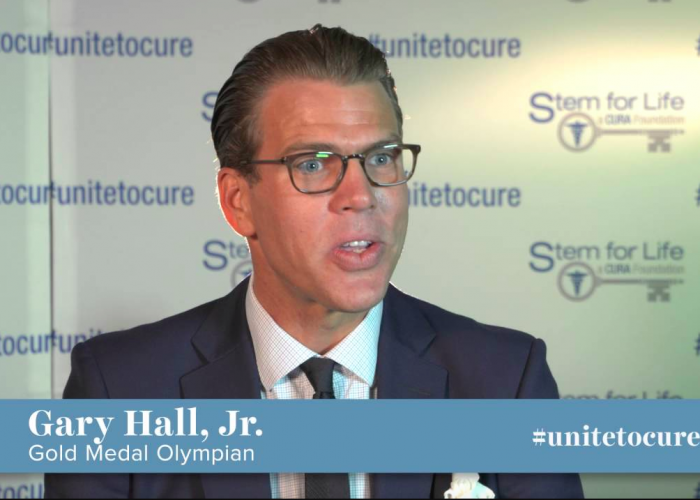5 Olympic Swimmers Who are Advocating for Causes Both in and Out of the Pool

By Kate Walter, Swimming World Intern.
After achieving international glory and arriving home to the states as a champion, several Olympic swimmers have used their platform to support certain causes and spend time giving back to their communities. While almost all professional athletes have found time to do community service, a select few have gone above and beyond to express their commitment to making the world a better place.
Here are five Olympic swimmers and the organizations to which the have dedicated their time and resources.
1. Donna de Varona and the Women’s Sports Foundation

Photo Courtesy: YouTube/USOC
A world record holder and pioneer in female sportscasting, Donna de Varona is not only known for her success at the 1964 Olympics where she won two gold medals but also for her role in advocating for women rights. De Varona began working as a sportscaster for ABC when she was 17 years old, becoming one of the youngest and only women to cover sports on a national network.
She helped found the Women’s Sports Foundation along with Billie Jean King, which was established to increase athletic opportunities for females and inspire an active and healthy lifestyle. In 1979, she became the first president of the foundation. After taking on the role, De Varona started the Annual Salute to Women in Sports Awards Dinner, created a toll-free phone number to provide information and began traveling and training fund grants to support aspiring athletes. De Varona served as a chairwoman for the 1999 Women’s World Cup and was heavily involved with the formation of Title IX, advocating in Washington D.C.
2. Cullen Jones and Make a Splash
It’s absurd to think that four-time Olympic medalist Cullen Jones almost drowned when he was a child. Jones, the first African-American to hold a world record in swimming, often tells this story to spread awareness about water safety as part of USA Swimming’s Make A Splash program. Jones is an ambassador for the foundation and serves as a role model for young African-American children in the swimming community.
A 2017 study by USA Swimming revealed that 64 percent of African-American children have little experience with swimming, along with 45 percent of Latinos/Hispanics and 40 percent of Caucasians. Jones aims to defy the odds surrounding minorities in the sport and travels around the country with Make a Splash to provide basic lessons to disadvantaged children.
3. Aaron Peirsol and Oceana

Photo Courtesy: Azaria Basile
Prior to the 2008 Beijing Olympics, Aaron Peirsol declared that he would “race for the oceans”. Peirsol, one of the greatest backstrokers in history, grew up in Southern California and always had a strong love for the ocean. After repeatedly noticing the rising levels of pollution in the waters by his home, Peirsol decided to become a spokesperson for Oceana, an international organization that strives to protect the world’s oceans.
Peirsol started the Race for the Oceans campaign to encourage swimmers and coaches to support Oceana and help its conservation efforts. He hosted the Race for the Oceans open water swim, inviting hundreds to participate in a series of races at Ft. Meyers Beach in Fla., along with a beach cleanup event and a clinic he taught with Rowdy Gaines. Peirsol’s goal is to inspire others to take care of the ocean by appreciating the natural beauty of the water.
4. Missy Franklin and Laureus Foundation, Swim Across America, Swim for Sight, SafeSplash and Ripples to Waves
Missy Franklin has been a role model for community service ever since attending Regis Jesuit High School and learning the importance of helping those in need. This Laureus Sport and USA Swimming Foundation ambassador volunteers her time to give clinics and teach children how to swim.
In 2015 she visited Sri Lanka to witness the destruction from the Tsunami, mentoring young children and helping to repair their villages. Franklin has also worked with Swim Across America, a charity that helps raise money for pediatric cancer research, by participating in their open water swims and fundraising. Upon receiving the TOYA Award, which honors 10 young Americans who have demonstrated their passion for helping others, Franklin teamed up with fellow recipient, ophthalmologist Dr. Michael Feilmeier, to support a program that would help cure the blind. Every 25 dollars donated to Swim for Sight would pay for a vision restoration surgery.
Franklin currently works with Ripples to Waves, a scholarship program connected to the USA Swimming Foundation and SafeSplash that offers swim lessons to those who otherwise may not be able to afford lessons. “I’m extremely passionate about the Ripples to Waves program and creating more opportunities for children to learn to swim and feel confident and happy in the water,” Franklin said. “This passion is what sparked my partnership with SafeSplash at the start. The good that will be done by the Ripples to Waves program and the USA Swimming Foundation will be long-lasting and is a great example of why I’m proud to be part of this team.”
Franklin also serves as a USA Swimming Foundation Ambassador, working to share the USA Swimming Foundation’s Make a Splash initiative which provides the opportunity for every child in America to learn to swim – regardless of race, gender or financial circumstances.
5. Gary Hall Jr. and His Work with Diabetes

Photo Courtesy: Youtube/ Cura Foundation
At the 2000 Olympics in Sydney, Gary Hall Jr. proved that he was one of the fastest swimmers in the world, tying his teammate Anthony Ervin for first place in the 50-meter freestyle. This accomplishment came as an extraordinary feat for Hall, who had recently been diagnosed with type one diabetes. Hall spoke of the difficulties he faced while training for the Games, constantly feeling fatigued and having to worry about his blood sugar levels.
After defending his title in the 2004 Olympics, Hall retired from the sport and devoted his time to advocating for people with diabetes. He became a member of the Juvenile Diabetes Research Foundation’s Government Relations Committee, traveling around the country and introducing new therapies for type one diabetics. He testified before the Senate to support funding for diabetes research projects – specifically those designed to help Native Americans with the disease.
Although these famed Olympic heroes may voice different opinions and rally around respective causes, the main goal they share is simple: to give back to the community that has given so much to them. The good news is that you don’t have to be an Olympian to make a difference in the world! How can you meet needs in your surrounding community?
All commentaries are the opinion of the author and do not necessarily reflect the views of Swimming World Magazine nor its staff.




Thank you for recognizing these people.